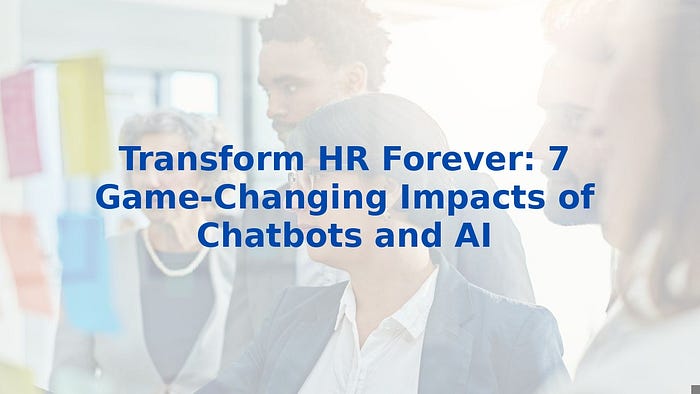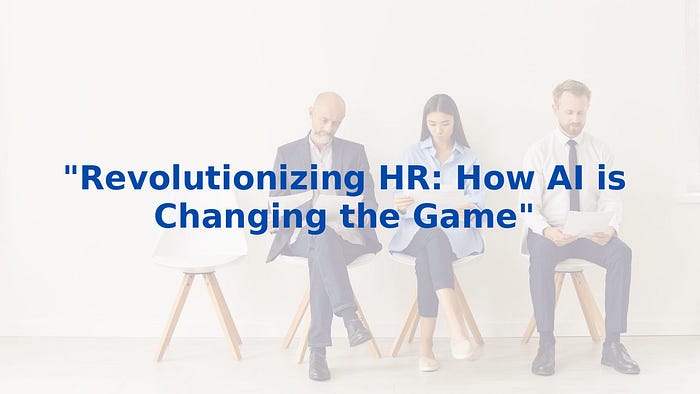Transform HR Forever: 7 Game-Changing Impacts of Chatbots and AI
Chatbots and AI have become indispensable tools in today’s enterprise landscape, revolutionizing various aspects of business operations, particularly in human resources. A recent survey by Forrester revealed that around 85% of customer interactions within enterprises will involve software robots within the next five years. Moreover, a significant percentage of CEOs are eager to expand their AI workforce using these intelligent bots. As companies strive to improve efficiencies, reduce costs, and enhance both customer and employee experiences, they are increasingly integrating AI, machine learning, and natural language understanding into their digital transformation strategies.
AI-Powered Bots Enhancing HR Processes
Human resources (HR) departments stand to benefit immensely from intelligent automation. AI-driven bots can streamline and personalize HR processes for a wide range of employees, including seasonal, temporary, part-time, and full-time staff. Let’s delve into the seven ways chatbots and AI are disrupting HR.
1. Recruitment
Recruiting seasonal and temporary employees often involves hiring in large volumes, which can be a logistical challenge for HR departments. AI-driven HR bots can alleviate these challenges by automating the screening process, collecting prospective employee information, and conducting quick background checks. This helps in managing the increased workforce demand during peak seasons efficiently.
2. Onboarding
Onboarding new employees can be a time-consuming and resource-intensive process. With the help of chatbots, the onboarding process becomes a seamless, self-serve experience. These bots can interact with employees directly and integrate with workforce management systems like Peoplesoft, Kronos, and Workday, ensuring a smooth onboarding experience.
3. Company Policy FAQs
Answering frequently asked questions (FAQs) about company policies is a routine task that can be automated using chatbots. Instead of having dedicated HR support centers, chatbots serve as mobile HR assistants, providing employees with instant answers to policy-related queries.
4. Employee Training
Interactive training sessions are proven to be more effective than traditional videos or presentations. AI-driven chatbots can facilitate these interactive training sessions, making the learning process more engaging and personalized for employees.
5. Handling Common Questions
Employees often have numerous basic queries related to HR policies, such as vacation days, health benefits, and payroll inquiries. HR bots can provide quick and accurate answers to these questions, improving employee productivity and satisfaction.
6. Benefits Enrollment
Benefits enrollment is a complex process that can be simplified and streamlined with the help of AI bots. These bots assist employees in understanding and navigating through the benefits enrollment process, ensuring they make informed decisions.
7. Annual Self-Assessments/Reviews
The traditional review process has often been criticized as outdated and ineffective by many HR leaders. AI chatbots enable real-time feedback and performance insights, facilitating continuous improvement and development for employees.
The Challenges of Implementing HR Bots
While AI-driven HR bots offer numerous benefits, there are also challenges that enterprises must address to ensure successful implementation. Here are four key challenges:
1. Information Security
HR bots handle sensitive personal information (SPI) and personal identification information (PII), making data security paramount. Enterprises should ensure all HR data, whether in transit or at rest, is encrypted and secure. Depending on security requirements, organizations may consider on-premise, hybrid, or cloud deployment models for their HR bots.
2. Legal Boundaries
HR chatbots must operate within legal and ethical boundaries. For example, chatbots should not provide specific health plan recommendations to employees due to potential legal implications. Instead, they should guide employees to resources that can help them make informed decisions without crossing legal lines.
3. Bot Extensibility
As companies evolve, the skills and capabilities of HR bots must also evolve. It is crucial to select an AI chatbot platform that allows HR departments to easily extend and enhance bot functionalities without requiring extensive coding knowledge.
4. Audit Logging
Maintaining an audit trail of all interactions between employees and HR bots is essential for compliance and data retrieval purposes. This ensures that all actions taken by the chatbot are documented and can be reviewed if needed.
In conclusion, as the workforce becomes more distributed and reliant on mobile communication, enterprises must embrace AI chatbots to enhance their HR processes. By addressing the challenges and leveraging the benefits outlined, companies can revolutionize their HR operations, driving efficiency, reducing costs, and providing a better employee experience.
For more insights on HR bots, visit Parlo HR Bots.
Originally published at www.parlo.io.
“Parlo builds smarter bots for smarter enterprises. We build AI chatbots that employ cutting-edge machine learning to seamlessly integrate with your business. They’ll support your human workforce, delight your customers, and save you time and money.”
Explore our offerings at: Complete AI Training, see the complete list of courses at Courses A-Z, check out AI certifications at AI Certification, and sign up for unlimited access at Complete AI Training Portal.



